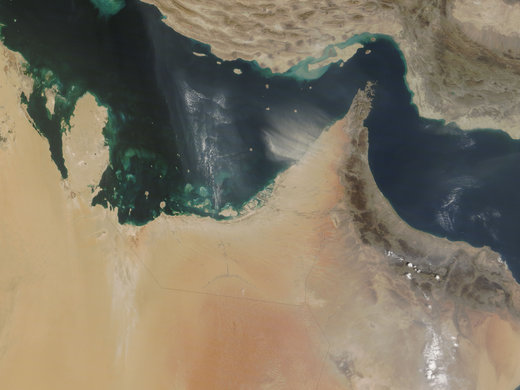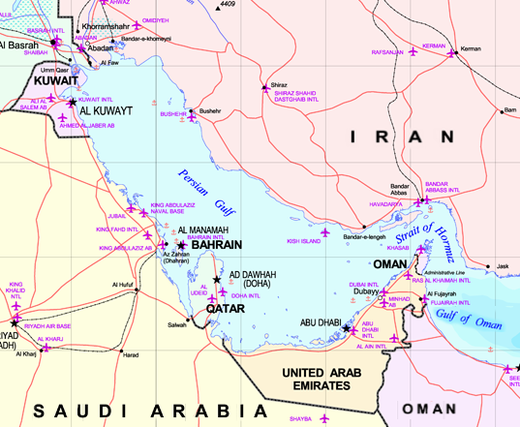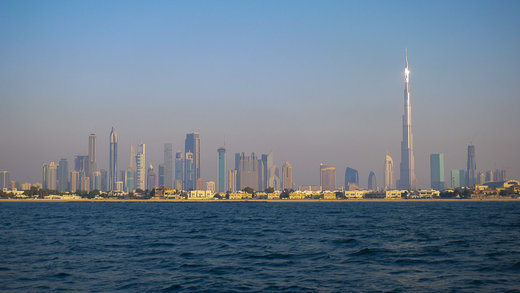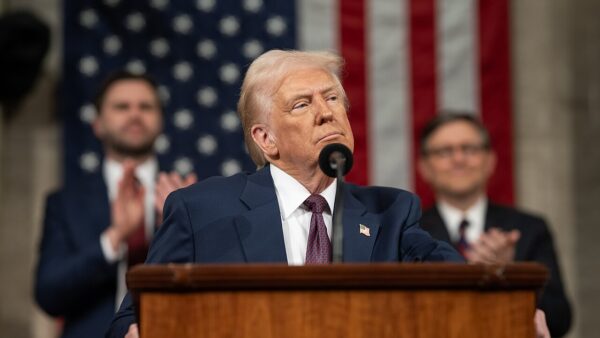7 April 2014
The diplomatic rift between Qatar and three other members of the Gulf Cooperation Council is forcing Western companies in the region to draw up damage limitation plans, but sources have played down the impact on region-wide construction projects.
The row over Qatar’s support for Egypt’s Muslim Brotherhood became public at the beginning of last month when Saudi Arabia, Bahrain and the UAE withdrew their ambassadors from Qatar. Since then, the two sides have fought a war of words.
Saud bin Faisal, the foreign minister of Saudi Arabia, said his country was considering closing its borders with Qatar and officials have exchanged inflammatory remarks on Twitter.
And last week Lieutenant General Dhahi Khalfan, deputy chairman of Police and General Security in Dubai, tweeted: “Qatar is an integral part of the UAE. We must put up signs on our borders with Qatar stating: ‘You are now entering the UAE’s eighth emirate.'”
However, Michael Stephens, the Qatar deputy director of defence think tank Royal United Services Institute (RUSI), played down the likelihood of sanctions and closed borders.

A picture of the Gulf states from a satellite (Wikimedia Commons)
“I don’t support this view that everybody is going to start closing borders,” he told GCR. “Nobody that I’ve spoken to in Saudi is that interested in that. The mutual benefits of integration are much more important than this spat, and I’d say that Dubai and Doha will continue to trade.”
Trade between GCC members is, in any case, limited by the fact that they are hydrocarbon-based economies.
According to Stephens, it is the government of Abu Dhabi, one of the emirates comprising the United Arab Emirates (UAE), that is now driving the dispute.
“Abu Dhabi is pushing hardest for the isolation of Qatar, and I don’t think the Saudis are prepared to go along with it in the way that the Emiratis want,” he said.
“The Qataris are very conscious of keeping the Saudis onside. On the other hand, the situation with the UAE has got quite serious and I think a lot of things have been said now that can’t be taken back in the near future.”
The enmity between Qatar and Abu Dhabi is forcing firms to consider whether they will have to choose one or the other. Sources say they have to bear in mind that having an office in Qatar may be a disadvantage if they try to win work in Abu Dhabi.

The map of the Gulf states (Wikimedia Commons)
“It’s something that requires a lot of thinking about,” one executive told GCR. “It’s a period of high tension and it’s difficult to think what decision to make. It’s clear that being based in one country when the divisions are the way that they are, you could be jeopardising future projects in another.”
Gulf rail scheme
Another senior executive at a Western construction firm told GCR that the political situation would not completely halt major projects, such as the 40km Bahrain-Qatar causeway and the $15bn Gulf rail scheme – but that it did raise a question over the integration of the multi-state rail scheme.
“The causeway is a project that is going to happen anyway,” the executive said. “And the GCC Railway is being governed by a body within the GCC and the budget has already been set there. If you look at the GCC, most of the countries have their rail projects happening or about to happen, so it’s the connection between that’s in question, and Qatar is already extending its network to Saudi Arabia as part of the World Cup work.
“We don’t see it stopping. Maybe it will be late, but the links haven’t been out to tender and as far as we know it’s all on plan. We haven’t been told any other news.”

Dubai, UAE. The UAE has emerged as Qatar’s chief antagonist, with the former police chief of Dubai calling for it to become “the eighth emirate” (Eugene Kaspersky)
RUSI’s Stephens agreed that the Bahrain-Qatar causeway would not be affected. He said: “They’ve been talking about the bridge between Qatar and Bahrain for 25 years so if it happens or it doesn’t happen it’ll be because the Bahrainis and the Qataris can or can’t agree on who’ll pay for what.”
Immediate victim
One immediate victim of the falling out has been Occidental Petroleum, a US-based oil and gas firm that was seeking to raise $8bn by selling a stake in its Middle East business.
Steve Chazen, the chief executive of the oil firm, told investors that it may now be too complicated to win agreement for a single sale to a group made up of Oman, the UAE and Qatar.
“The notion that they were going to somehow co-operate with each other in an oil investment is difficult at best right now,” Chazen said.
Indeed, on 3 April Qatar announced it would leave the tri-partite bidding group.










